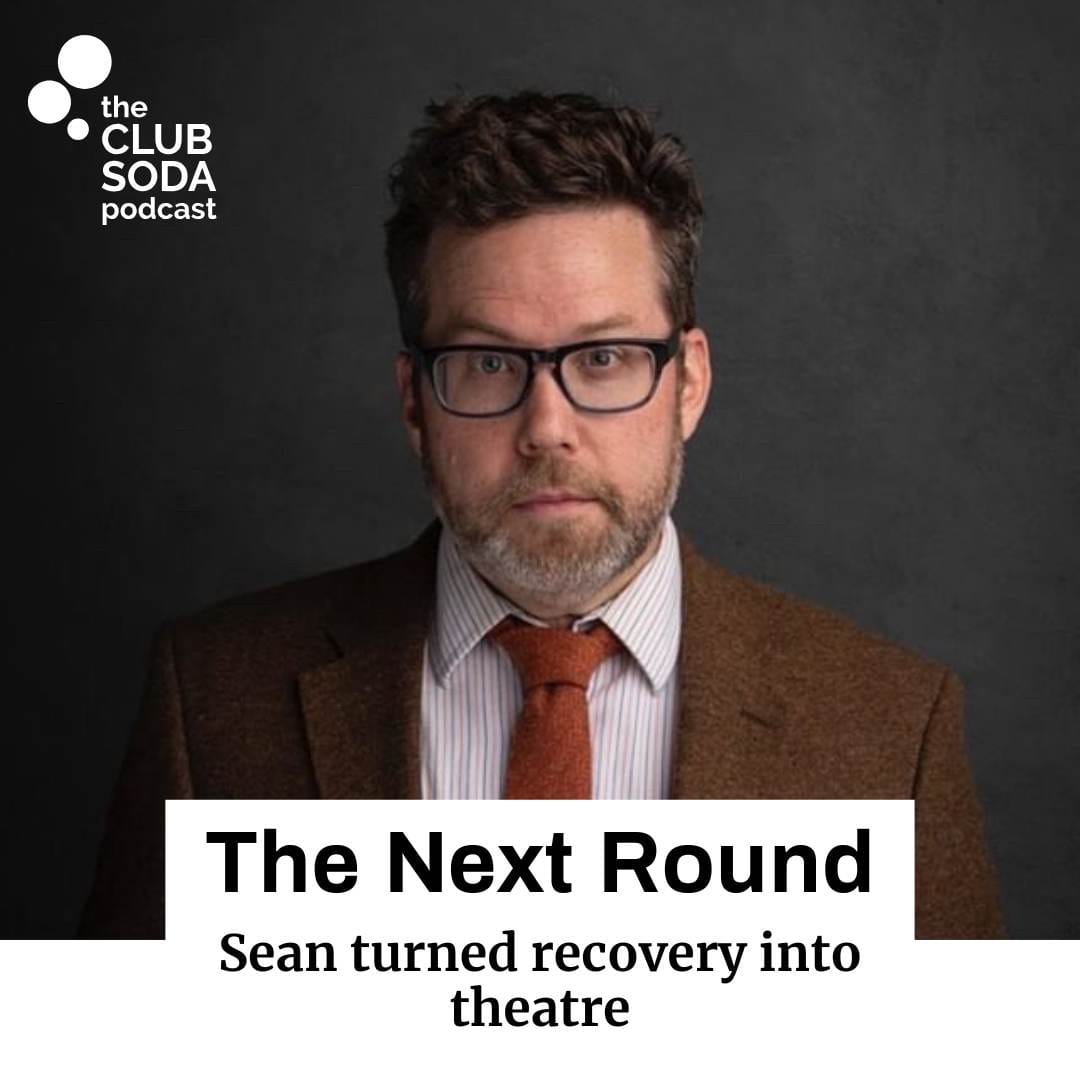
This website uses cookies to improve your experience. We'll assume you're ok with this, but you can opt-out if you wish. Read More
The Next Round: What happens after you change your drinking?

Much is written, by Club Soda and others, about the first day you give up drinking. And while Day 1 is a particularly challenging day, especially if it’s not your first one, it’s important not to dismiss the challenges of Day 2, too. The first few days after giving up drinking are notoriously not the easiest, but each day offers its own lessons and, as time passes, you’re building resilience and changing old habits. The first week or so may be difficult, but we’re here for it, and before you know it, you’ll have aced that week with a whole host of tools under your belt to face the weeks and months beyond that.
Let’s get back to Day 2. It’s easy to think that with Day 1 completed, Day 2 will be a breeze. It is a day of tests and triumphs, so grab a shower, boil the kettle, and get ready to put in some effort to make this day work for you.
Let’s face it, Day 1 was probably no picnic. It’s possible that we were still hungover from the day before and we spent most of the day on the sofa, under a blanket, with our favourite hangover food, waiting for the symptoms to pass. Day 1 is all about self-care and looking after our immediate physical symptoms.
Day 2 isn’t without physical symptoms, either, but instead of a hangover, these will be the beginnings of alcohol withdrawal symptoms. Some symptoms, like nausea, headaches, and fatigue, are similar to a hangover. It’s not unusual on Day 2 to be experiencing shakes, sweating, and insomnia as part of alcohol withdrawal. These symptoms indicate that we’ve become physically dependent on alcohol. While this isn’t a pleasant reality, it is a sign that the body is beginning to detox from alcohol and we’re on our way to being less dependent every day. This is a testing time as the last thing we feel like doing when we’re feeling physically ill is to give ourselves a positive pep talk, but treating ourselves kindly – with lots of fluids and rest and healthy food – will definitely help.
If you experience more severe symptoms such as seizures, hallucinations, confusion, or poor coordination, you must seek medical help urgently. If you’re physically dependent on alcohol, it can be dangerous to stop drinking suddenly, and it’s safer to cut down slowly over time.
While today is a day not to become complacent, there’s plenty to help keep us motivated and focused on our goals. It may be that we’ve not reached Day 2 before, so we’re a step ahead of where we’ve been in the past. That’s worth a pat on the back! As we explain at the beginning of our course, How to Stop Drinking, rather than keeping track of days, it’s good to focus on our achievements and the benefits of change. It’s feeling good that motivates us to keep going beyond Day 2.
Imagine starting a new job, and having no prior experience. The first day is always a little daunting, full of uncertainty and nervous energy. But by the second day, we have some idea of what to expect, meaning we’re better prepared than yesterday, and we have a whole day’s worth of experience under our belt. Now apply this to changing our drinking. We have 24 hours’ worth of experience at not drinking under our belt! If we treat each day as a lesson where we’re learning about ourselves and give ourselves credit for every day that we gain more experience, then we’re reinforcing good habits.
The negatives of drinking alcohol habitually are what brought us to Day 2. Shame, embarrassment, guilt, low self-esteem – they’ll all be rearing their ugly heads this week. And while negative emotions can be powerful motivators for change, behaviour change science shows that positive reinforcement creates lasting change. So focusing on each day, or each hour if we need to, are all positive steps in the direction of our goals.
It might be that cutting out alcohol altogether is not a good idea, especially if our symptoms are more severe on Day 2. Quitting alcohol cold turkey might seem like the best idea for our goals, but we may be physically dependent on alcohol, and this could be dangerous. If you need support to taper off alcohol, you’re in the right place. How to Safely Taper Off Alcohol is Club Soda’s structured and self-guided online course that takes you step-by-step towards being alcohol-free. This course is designed for people who may be physically dependent on alcohol and who might experience alcohol withdrawal symptoms if they stop suddenly. Filled with practical advice, guidance, well-being check-ins, and support, this course will help you safely wean yourself off alcohol. If this feels like the right support for you, access the course here.
This website uses cookies to improve your experience. We'll assume you're ok with this, but you can opt-out if you wish. Read More
| Name | Domain | Purpose | Expiry | Type |
|---|---|---|---|---|
| wpl_user_preference | joinclubsoda.com | WP GDPR Cookie Consent Preferences. | 1 year | HTTP |
| PHPSESSID | www.tickettailor.com | PHP generic session cookie. | 55 years | HTTP |
| AWSALB | www.tickettailor.com | Amazon Web Services Load Balancer cookie. | 7 days | HTTP |
| YSC | youtube.com | YouTube session cookie. | 55 years | HTTP |
| Name | Domain | Purpose | Expiry | Type |
|---|---|---|---|---|
| VISITOR_INFO1_LIVE | youtube.com | YouTube cookie. | 6 months | HTTP |
| Name | Domain | Purpose | Expiry | Type |
|---|---|---|---|---|
| _ga | joinclubsoda.com | Google Universal Analytics long-time unique user tracking identifier. | 2 years | HTTP |
| sbjs_migrations | joinclubsoda.com | Sourcebuster tracking cookie | 55 years | HTTP |
| sbjs_current_add | joinclubsoda.com | Sourcebuster tracking cookie | 55 years | HTTP |
| sbjs_first_add | joinclubsoda.com | Sourcebuster tracking cookie | 55 years | HTTP |
| sbjs_current | joinclubsoda.com | Sourcebuster tracking cookie | 55 years | HTTP |
| sbjs_first | joinclubsoda.com | Sourcebuster tracking cookie | 55 years | HTTP |
| sbjs_udata | joinclubsoda.com | Sourcebuster tracking cookie | 55 years | HTTP |
| sbjs_session | joinclubsoda.com | SourceBuster Tracking session | Session | HTTP |
| Name | Domain | Purpose | Expiry | Type |
|---|---|---|---|---|
| mailchimp_landing_site | joinclubsoda.com | Mailchimp functional cookie | 28 days | HTTP |
| __cf_bm | tickettailor.com | Generic CloudFlare functional cookie. | Session | HTTP |
| NID | google.com | Google unique id for preferences. | 6 months | HTTP |
| Name | Domain | Purpose | Expiry | Type |
|---|---|---|---|---|
| _ga_10XZMT03ZM | joinclubsoda.com | --- | 2 years | --- |
| AWSALBCORS | www.tickettailor.com | --- | 7 days | --- |
| cf_clearance | tickettailor.com | --- | 1 year | --- |
| VISITOR_PRIVACY_METADATA | youtube.com | --- | 6 months | --- |
Join Club Soda for 10% off your first order of drinks for UK delivery. Plus get our latest news and special offers for members to choose better drinks, change your drinking and connect with others.
If you get an error message with this form, you can also sign up at eepurl.com/dl5hPn